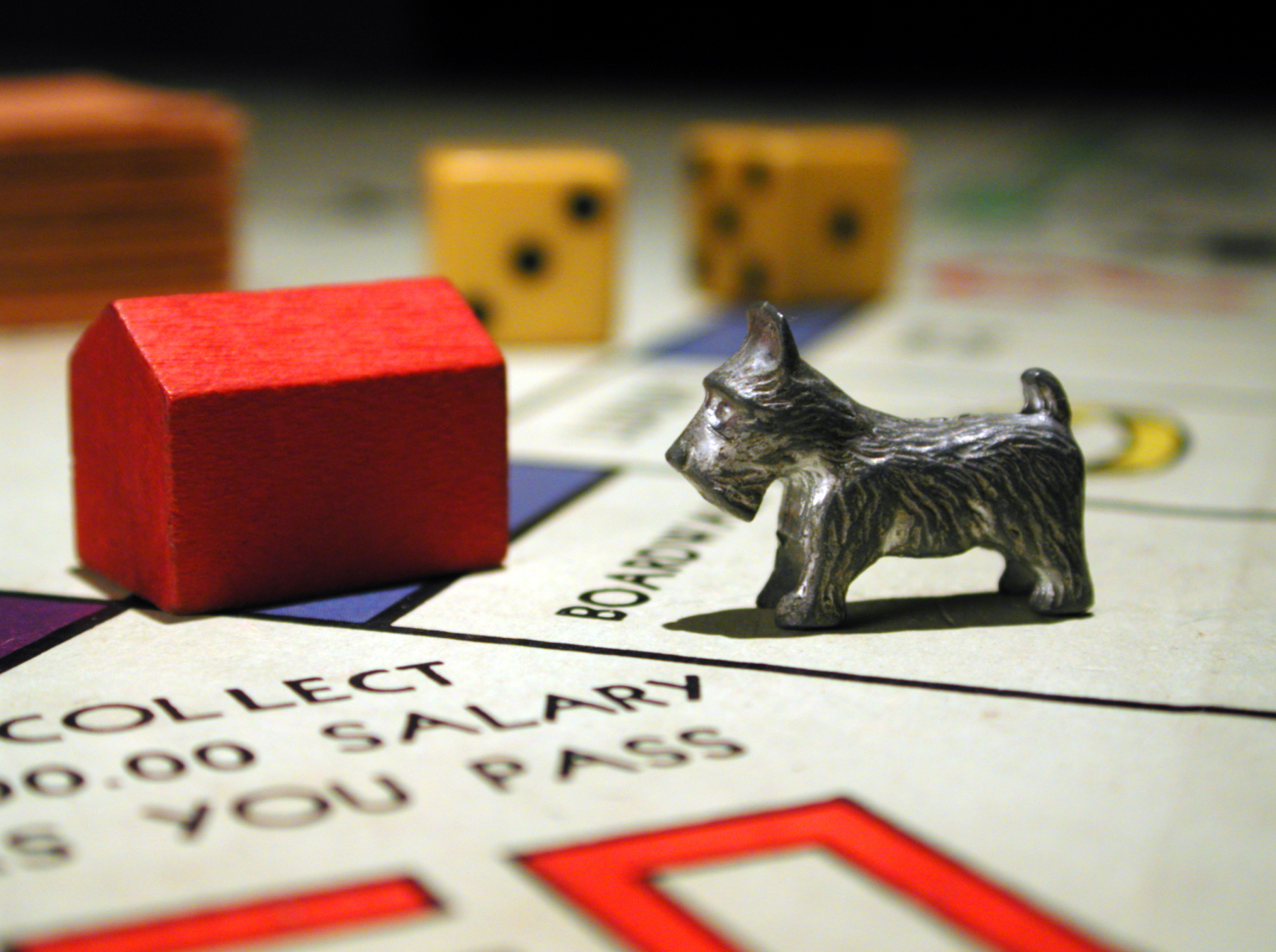
Meet Lizzie Magie, Macomb’s Real Inventor of Monopoly
Published on March 7, 2024
Macomb, Ill., aka “Forgottonia,” is honoring Lizzie Magie on May 9th, her birthday, by unveiling the world’s largest Monopoly board in Courthouse Square. You’ll be able to play this life-sized version of Macombopoly for free through the eATLAS app, where you can also explore the town’s history with Abraham Lincoln and see its many murals.
By Dave Lifton (@daveeatschicago)
Elizabeth Magie was born in Macomb in 1866. Her father, James, was a newspaper publisher and early member of the Republican Party. His politics had become informed by Henry George, whose 1879 book, Progress and Poverty, advocated for a “single tax” economic policy where only land, rather than labor, would be taxed, thereby shifting the burden to landlords. James passed George’s theories down to his daughter.
In the 1880s, Lizzie moved to Washington, D.C., and took a job as a stenographer for the federal government, receiving a patent in 1893 for a device she invented that allowed paper to flow through a typewriter’s roller more easily. In her spare time, she acted and was involved with a single tax club. In 1903, she created a board game to help teach George’s philosophy to the public.
“The Landlord’s Game,” as she called it, featured a square board—possibly modeled on Macomb’s downtown—with spaces that could be purchased. Magie wrote two sets of rules. In the first, rents were paid to the public treasury to be used on civic improvements as wages rise with each turn around the board. The winner was the first person who accumulated $3,000.
In the second, the idea was to buy as much land as possible and drive your opponents into poverty. Playing both versions, she felt, would reveal the inherent immorality of landowners (the reason for the “Go to Jail” square, for example, was because you were trespassing on “Lord Blueblood’s Estate”). She was granted a patent for the game in January 1904. The Landlord’s Game was produced in 1906 by the Economic Game Company, which Magie co-founded.
That same year, Magie was defiantly and proudly single and living in Chicago, and had trouble supporting herself on her stenographer’s salary of $10 a week. To draw attention to the systemic inequities faced by unmarried women, she placed an ad where she offered to sell herself as a “young woman American slave” to the highest bidder. The stunt made national news, and she received numerous offers, some serious and others mocking. However, it led to her getting a job as a newspaper reporter in New York, where she met and married Albert Phillips, a businessman 10 years her senior. They returned to the Washington, D.C., area.
Magie Phillips revised the game in 1924, and it became popular among progressive college students and other like-minded individuals. Players tailored the rules, such as grouping properties by color and adding buildings to be developed on them, to add excitement. Others, such as a group of Quakers outside Philadelphia, changed the name of the squares to the streets of Atlantic City, N.J.
By the time one of those Quakers, a salesman named Charles Darrow, learned the game, Magie’s vision of a way of teaching progressive economics had fallen by the wayside, and only the cutthroat version remained (the original starting point was originally a globe with a quote from George, “Labor upon Mother Earth produces wages.” But now it consisted of a single word: “Go.”). Darrow made a few cosmetic changes and sold it to Parker Brothers in 1935 as “Monopoly.”

But Monopoly was too close to The Landlord’s Game, which Parker Brothers had rejected years earlier. In November 1935, the company offered Magie $500 for the rights to her creation and a deal to publish two more games by her. Monopoly hit the market a month after the deal was completed, and it came with a story about how Darrow invented it to entertain his family during the Depression, even though Parker Brothers knew its true origins.
The other two Magie games that Parker Brothers bought, Bargain Day and King’s Men, failed to connect with the public.
As Monopoly was sweeping the nation, Magie’s role as its creator was the subject of a January 1936 article in the Washington Evening Star. The article states that, even though she lost out on untold riches had she not sold the rights, “if the subtle propaganda for the single tax idea works … she feels the whole business will not have been in vain.”
Regardless, the lie of Darrow as Monopoly’s inventor took hold in the public consciousness. Magie continued tinkering with The Landlord’s Game (a 1939 version is on display at Macomb’s historic train station) and she continued to advocate for George’s ideas until her 1948 death. Her story would have been forgotten if not for an economics professor named Ralph Anspach, who, in 1973, discovered Magie’s patents as he battled with Parker Brothers over his right to produce an “Anti-Monopoly” game. Ten years later, the Supreme Court ruled in his favor.

The Adventure starts when you say it does.
All eATLAS Adventures are designed and built by experienced eATLAS Whoa!Guides. They're always on. Always entertaining. And always ready to go.
Check out our Adventures!